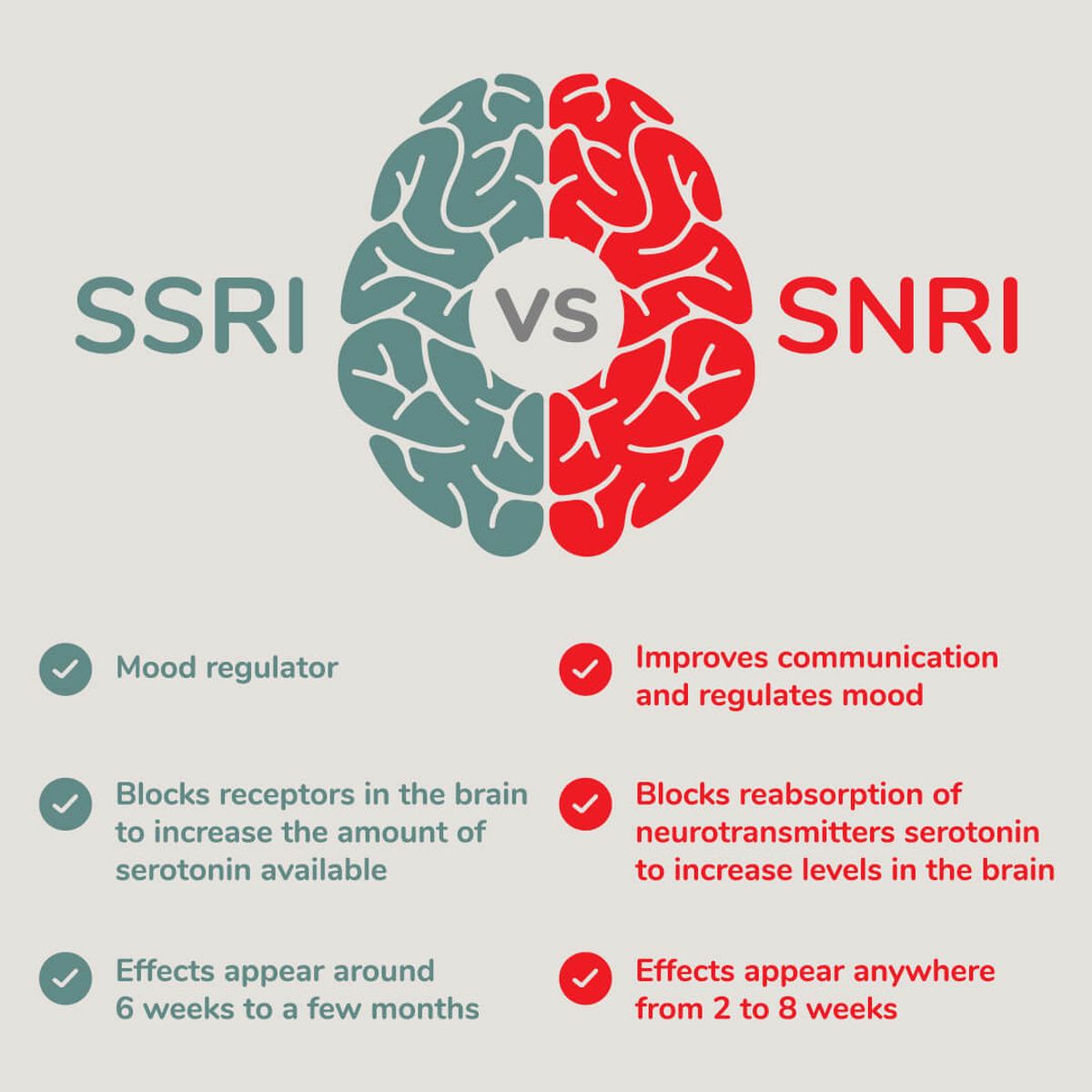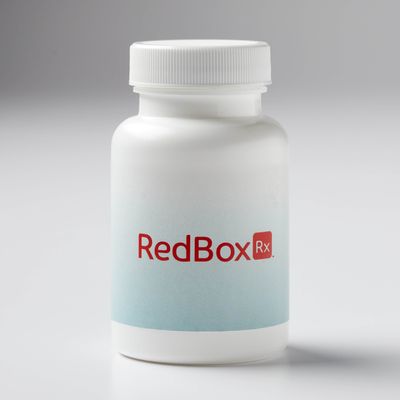Over 40 million adults in the U.S.1 (19.1%) deal with some form of anxiety disorder, making it the most common mental health concern today. Treating anxiety is often a comprehensive endeavor that combines several treatment options, including therapy, stress management techniques, and medication.
There are a variety of prescription medications available to treat anxiety. Each works differently to help users find relief from anxiety symptoms. This guide provides an overview of the different kinds of anxiety medications, how they work, and what brands are available.
Key Takeaways
A licensed healthcare provider will need to diagnose an anxiety disorder and write a prescription.
Choose from in-person care or fully online through a trusted telehealth service like RedBox Rx.
First-line prescriptions usually include SSRIs, SNRIs or buspirone. Short-acting benzodiazepines may be added for acute relief but are closely monitored for dependence risk.
What is anxiety medication?
Anxiety medication is any drug prescribed to treat anxiety disorders in users.2 Anxiety medications can vary across patients and often have crossover prescriptions for diagnoses like depression and insomnia.
Common types of anxiety medication
Anxiety medication can be classified into a few groups of medications: SSRIs, SNRIs, TCAs, benzodiazepines, and anxiolytics.
Selective serotonin reuptake inhibitors (SSRIs) for anxiety
Selective serotonin reuptake inhibitors, or SSRIs, are a commonly prescribed group of medications for anxiety. SSRIs are antidepressants but are widely prescribed for anxiety and obsessive-compulsive disorders (OCD). Their main benefit is mood regulation.
Serotonin is a neurotransmitter that helps transport signals in the brain. When there is a lack of serotonin, the brain struggles with regulating emotions and other functions. SSRIs work3 by blocking specific receptors in the brain to increase the amount of serotonin available.
SSRIs take some time to make a noticeable difference for most people. The average time to notice positive effects is four to six weeks of consistent medication. It may even take a few months to feel the full benefits of SSRI medications.
Common brands of SSRIs include:
Luvox (fluvoxamine)
Serotonin-norepinephrine reuptake inhibitors (SNRIs) for anxiety
Like SSRIs, serotonin-norepinephrine reuptake inhibitors (SNRIs)4 are antidepressants commonly prescribed for anxiety. SNRIs work5 by blocking the reabsorption of neurotransmitters serotonin and norepinephrine to increase the levels available in the brain. This improves communication in the brain and helps regulate mood and reduce anxiety symptoms over time. SNRIs6 can take anywhere from two to eight weeks depending on the individual.
Common brands of SNRIs include:
Pristiq (desvenlafaxine)

Tricyclic antidepressants (TCAs) for anxiety
TCAs have similar benefits for mood regulation as SSRIs7. They are less commonly prescribed because patients tend to have more side effects with TCAs than with SSRIs. They have proven effective for some users who do not find relief with SSRIs or other anxiety medications.
Common brands of TCAs include:
Elavil (amitriptyline)
Tofranil (imipramine)
Pamelor (nortriptyline)
Benzodiazepines for anxiety
Benzodiazepines8 are often prescribed to immediately relieve anxiety symptoms like tense muscles, headaches and elevated heart rate. These drugs have sedative effects that can relax muscles, calm nervous feelings, and help users sleep. These drugs are often combined with other anxiety medications like SSRIs or SNRIs to treat chronic anxiety disorders. Take a benzodiazepine when you have a panic attack and an SSRI as a daily mood stabilizer, for example.
Common brands of benzodiazepines include:
Xanax (alprazolam)
Librium (chlordiazepoxide)
Valium (diazepam)
Ativan (lorazepam)
Anxiolytics for anxiety
Anxiolytics medications9 alter the levels of neurotransmitters in the brain, but differently than SSRIs or SNRIs. Anxiolytics increase the action of serotonin and dopamine receptors in the brain. This is believed to reduce abnormal excitability that can cause anxiety symptoms and panic attacks.
Using anxiolytics is a long-term approach to treating anxiety. Anxiolytics10 have been shown to help improve some anxiety symptoms in one to two weeks, but it generally takes six to eight weeks to see a sizeable improvement for most users.
Common anxiolytics include:

Anxiety Treatment Online
Anxiety disorders are the most common form of mental illness with nearly 30% of all adults experiencing anxiety at some point in their lives. Our team of U.S. licensed medical professionals are here to help you determine the best treatment options for your specific needs.
Learn MoreCan you get anxiety medication over the counter?
Anxiety medication is available by prescription only and not over the counter. Please keep in mind it is unsafe to take anxiety medication that has not been prescribed, specifically to you, by a licensed medical professional. It is essential to be evaluated by a licensed medical professional to determine if anxiety medication is right for you.
Who can prescribe anxiety medication?
Anxiety medications must be prescribed by licensed medical professionals, including medical doctors, physicians assistants and nurse practitioners. A licensed therapist is a great avenue to pursue overall anxiety treatment. However, they cannot prescribe medications. A psychiatrist, however, can prescribe medication in addition to or in combination with psychotherapy.
Can I get anxiety medication online?
In the U.S., a licensed medical professional can prescribe anxiety medication through online communications via a certified online provider, like RedBox Rx.
The process requires a telehealth call with a licensed medical professional to assess your mental health needs. The medical professional then determines whether you would be a good candidate for anxiety medication. The prescription can be filled directly through RedBox Rx, and shipped directly to the patient in one seamless, discreet online process.
How much does anxiety medication cost?

The cost of anxiety medication varies depending on a variety of factors. For example, generic versions of medication will be less expensive than a name brand. Insurance coverage and the source of the medication factor into the costs.
With RedBox Rx your telehealth visit for anxiety will cost you a flat rate of just $35 and medication starts at $25 per month. Anxiety medication from RedBox Rx is FSA or HSA eligible to help with costs.
| Brand | Total Cost Per Month |
|---|---|
RedBox Rx
|
$60 |
Cerebral®
|
$85 |
PlushCare®
|
$69 |
*With RedBox Rx, you pay for care only as you need it and/or as directed by your medical provider. Talk with a medical provider for only $35 per consultation.
How to talk to your doctor about anxiety medication
Talking to your doctor about your mental health and anxiety can be challenging but receiving the treatment and medication you may need is essential. Before speaking with your doctor, write down all the anxiety symptoms you have. This will help you go into the conversation with clarity. It’s helpful for your medical professional to note how often you are experiencing anxiety symptoms and their severity.
Common anxiety symptoms11 include:
Restlessness
Irritability
Feelings of apprehension or dread
Pounding or racing heart
Shortness of breath
Unexplained sweating
Tremors or twitches
Headaches
Insomnia
Fatigue
Upset stomach
Telehealth visits can help some people with doctor-induced anxiety feel more comfortable. RedBox Rx provides low-pressure consultations for convenience and to minimize patient stress. The telehealth call typically takes place within 30 minutes of your assessment, unlike many mental health professionals that have long waiting lists to be seen.
How RedBox Rx can help
RedBox Rx makes receiving medication treatment for anxiety easy and affordable.
Benefits of RedBox Rx include:
Transparent, affordable, flat rates. Medications for $25 per month (with purchase of three-month supply).
$35 consultations with a U.S. licensed medical professional.
No insurance required. FSA and HSA eligible.
No office wait times or scheduling issues typical with physical medical practices.
FREE shipping directly to you. Monthly subscriptions available.
Get started on your anxiety treatment journey with our assessment.
If you are experiencing suicidal or self-harm thoughts, please reach out immediately to a health care provider or call the National Suicide Prevention Lifeline at 1-800-273-8255.


